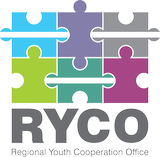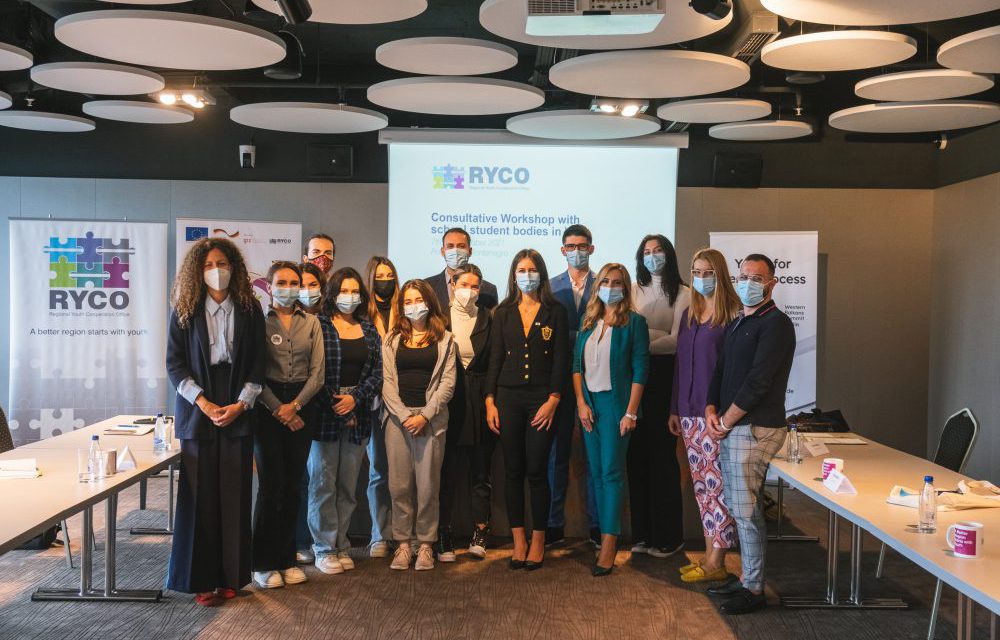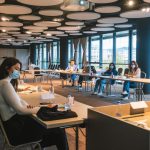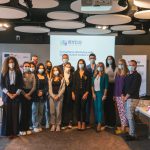PODGORICA – Within the new RYCO strategy development process supported by the German Ministry of Foreign Affairs, the RYCO Local Branch Office in Montenegro organized a Consultative Workshop with high school student bodies that took place from 7 to 9 October 2021, in Podgorica.
The input coming from the students in this group will be analysed and gathered for the purpose of developing the new priorities of the RYCO Strategy 2022 – 2024.
The consultative workshop with representatives from the high school student bodies in the Western Balkans was opened by the Head of the RYCO Local Branch Office in Montenegro Mr Edin Koljenović and Advisor in the Directorate for Sports and Youth Ms Snežana Ivanović.
Mr Koljenović highlighted that RYCO recently has conducted numerous consultative meetings and interviews with an aim of gathering inputs from different groups of youth contributing to the process of the development of the new RYCO Strategy 2022 – 2024, that would respond to young people needs. He also introduced the newly established Superschools regional school exchange programme and invited youth and schools to be a part of it.
In her remarks, Ms Ivanović stated: “You, young people, are the driving force in the implementation of the RYCO mission and the changes in the region, and on behalf of the Directorate of Sports and Youth I encourage you to be fully involved and to freely express your views and ideas.”
The consultative workshop served as the opportunity to not only gather a number of high school student bodies’ representatives throughout the region and discuss possible areas of cooperation with RYCO, but also to exchange experience and practice, and discuss challenges that students face in their communities.
During the meeting, RYCO Program Officers Ms Bojana Lalatović and Ms Irena Marunović used the opportunity to present the regional exchange scheme call for high schools “Superschool”, open until 28 October, as well as the RYCO Youth Info platform “Hajde” that will be launched by the beginning of December 2021.
School student councils represent the youth population of 14-18 and are significant bodies for direct communication with school students, but also serve as an advocacy tool for protecting student’s rights, empowering youth and taking part in educational policies.







